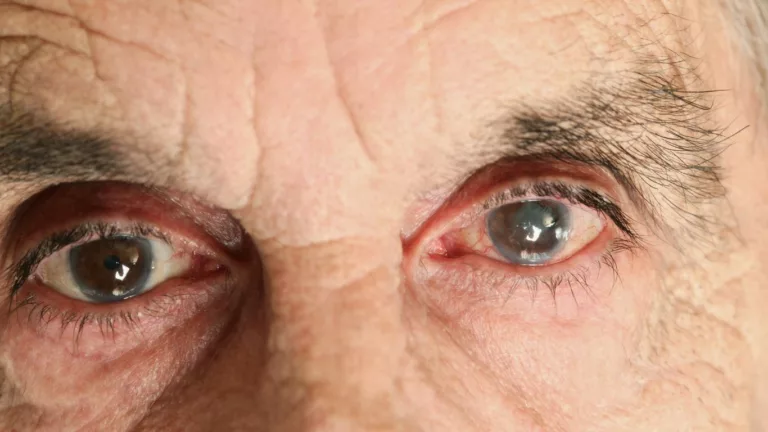Alarming Signs: Can Asthma Cause Weird Chest Sensations You Shouldn’t Ignore
If you’ve ever found yourself wondering, can asthma cause weird chest sensations?—you’re absolutely not alone. As a pulmonary nurse practitioner, I’ve had countless patients ask me that exact question, often with a worried look on their face. And I get it. When your chest feels “off,” it’s hard not to jump to worst-case scenarios. Maybe you feel fluttering, tingling, tightness, or even what I like to call a “fizzy soda” feeling under your ribs. It’s weird, it’s uncomfortable, and yes—it can definitely be related to asthma.
What Do We Mean By “Weird Chest Sensations”? Let’s Break It Down

First off, let’s talk about what these “weird” sensations even are. As someone who spends her days evaluating lung function, I’ve noticed that chest sensations vary wildly from person to person. For some, it’s a dull ache. For others, it’s more of a prickly pressure or flutter. And then there are the patients who describe it like there’s a balloon inflating inside their chest.
Common Descriptions I Hear in My Clinic:
- “It feels like there’s a weight sitting on my chest.”
- “I get this odd vibration when I breathe in deeply.”
- “It’s like a tickle or spasm—hard to explain.”
- “Sometimes it feels like bubbles popping inside me.”
Sound familiar? You’re not imagining things. And if you have asthma, these sensations could be more than just random—there’s often a medical reason behind them.
So, Can Asthma Cause Weird Chest Sensations? Short Answer: Yes

Here’s the deal: asthma can absolutely trigger unusual chest feelings, and it’s something I see all the time in my practice. Asthma is a condition that causes your airways to become inflamed and narrow, and that process doesn’t just affect breathing—it affects how your chest feels, too.
Why These Sensations Happen:
- Airway Inflammation: When your bronchial tubes are irritated, they can send off weird nerve signals that make your chest feel buzzy or heavy.
- Muscle Tightness: During an asthma flare-up, the muscles around your airways contract. That tightening can create pressure or even pain in the chest wall.
- Mucus Buildup: Extra mucus production can make breathing harder and may trigger odd chest vibrations or crackling sensations.
- Hyper-awareness: When breathing gets difficult, many people become more aware of every little twinge in their chest, which amplifies the feeling.
In my own experience, I’ve had patients who thought they were having a heart attack when it was really just a moderate asthma exacerbation. It’s scary, and it makes sense to worry—but once we got their asthma better controlled, those strange sensations vanished.
Is It Asthma, Anxiety, or Something Else?

Here’s where it gets tricky. Not all chest weirdness is caused by asthma. That’s why a thorough evaluation is key. One of the things I emphasize with my patients is not to self-diagnose—especially when it comes to chest symptoms. As a pulmonary NP, I always start by ruling out cardiac causes, anxiety, GERD, and even musculoskeletal issues.
Fun fact: The diaphragm—your main breathing muscle—can get sore and send mixed signals if it’s overused during a flare. You’d be amazed how many patients feel better just by improving their posture and breathing patterns.
When to Be Concerned:
- Chest sensations that come with dizziness or fainting
- Pain radiating to the jaw, back, or left arm
- Persistent or worsening symptoms despite asthma meds
- Shortness of breath at rest
Those signs deserve urgent medical attention. But for the odd sensations tied to asthma, the best approach usually involves refining your treatment plan and working closely with a provider who understands the nuances—like a pulmonary NP (shameless plug, I know!).
How to Tell if Those Chest Sensations Are Asthma-Related

Now, this is the million-dollar question I get from patients on the regular: “How do I know if this is my asthma acting up or something else entirely?” Honestly, it takes a little detective work. But there are some patterns I’ve picked up over the years as a pulmonary nurse practitioner that can help clue us in.
Look for These Clues:
- Timing: Do the sensations show up during allergy season, after exercise, or in cold air? That’s a major asthma red flag.
- Relief with medication: If using your rescue inhaler helps ease the sensation, bingo—it’s probably asthma-related.
- Breathing pattern changes: Do you catch yourself breathing fast, shallow, or irregularly during episodes? That’s often tied to asthma or anxiety (or both!).
One of my patients used to get chest flutters every time she climbed stairs. She chalked it up to being “out of shape,” but after doing some lung function tests and tracking symptoms, we realized it was exercise-induced bronchospasm—a type of asthma! Once we adjusted her inhaler timing, those “weird” sensations disappeared almost completely.
Asthma Triggers That Can Stir Up Chest Sensations

Okay, let’s talk about the usual troublemakers. If you’re dealing with bizarre chest feelings and you have asthma, it’s time to play trigger detective. You might be surprised by how common—and sneaky—some of these triggers are.
Big Culprits Include:
- Cold air: Ever gone outside in winter and instantly felt tight in the chest? Cold air can constrict the airways fast.
- Allergens: Pollen, pet dander, dust mites—you name it. Inhaled irritants can kickstart inflammation before you even realize it.
- Strong scents: I had a patient who couldn’t walk down the laundry detergent aisle without chest pressure. Fragrances are a big trigger for many people with reactive airways.
- Stress: Yep, even emotional triggers can make asthma flare. It’s like your chest is carrying the weight of your worries—literally.
I always recommend my patients keep a simple symptom journal. Jot down when the sensations happen, what you were doing, what you ate, where you were. It’s like piecing together a puzzle—and it can make a big difference in pinpointing and managing triggers.
Managing Weird Chest Sensations with an Asthma Action Plan

Alright, let’s get practical. If you’re regularly feeling strange chest sensations and you know asthma is part of the picture, you need an asthma action plan. Not just a vague “take your inhaler when needed,” but a real step-by-step plan you can follow when things feel off.
My Top Recommendations as a Pulmonary NP:
- Know your zones: A good action plan has green, yellow, and red zones. Green is your normal state, yellow means symptoms are ramping up (like those chest sensations), and red means it’s time for urgent action.
- Track your peak flows: If you’re into numbers, a peak flow meter is your friend. It helps quantify your lung function and often shows changes before symptoms kick in.
- Adjust medication proactively: Work with your provider to know when to increase controller meds or use your rescue inhaler more often.
I had a patient—let’s call him Dave—who always felt a “buzzing” sensation in his chest a day or two before a full-blown asthma flare. Once we made that connection, he started using his maintenance inhaler more consistently during those early warning signs. Total game-changer. He hasn’t had an ER visit in over a year.
Other Conditions That Can Mimic Asthma Chest Sensations
This one’s important. I never like to jump to conclusions, and neither should you. Just because you have asthma doesn’t mean every chest symptom is asthma-related. Part of good asthma care (and really, good healthcare in general) is ruling out the other stuff.
Common Conditions That Overlap:
- GERD (acid reflux): Can cause chest burning, tightness, or pressure—especially after eating or lying down.
- Costochondritis: Inflammation of the chest wall. I see this a lot in folks who overuse their upper body or have poor posture.
- Anxiety and panic attacks: These can mimic asthma symptoms exactly—tight chest, shortness of breath, dizziness.
This is why I always look at the full picture: physical symptoms, lifestyle, emotional state, and even sleep quality. Our bodies are complex—and chest symptoms are one of those signals that need careful decoding.
Tips for Managing Asthma-Related Chest Sensations in Everyday Life

So now that we’ve established that asthma can cause weird chest sensations, the next step is figuring out what to *do* about them. Over the years, I’ve coached a lot of folks through this—people who were scared, frustrated, or just plain tired of feeling like their chest was betraying them. Good news: there are strategies that actually work.
Here’s what I often recommend in my clinic:
- Breathing exercises: Yep, simple but powerful. Diaphragmatic breathing and pursed-lip breathing can calm your airways and your mind. Plus, they help reduce that hyper-awareness of your chest.
- Rescue meds on hand: Always carry your rescue inhaler. You never want to be caught off guard. I’ve lost count of how many patients forget theirs at home—then end up in the ER for something that was totally preventable.
- Stay consistent with controller meds: Inhaled corticosteroids work best when taken every day, not just when you feel symptoms creeping in. Chest sensations are often a sign of low-level inflammation that hasn’t been fully addressed.
- Stay active (but smart): Light cardio, yoga, or walking can strengthen your lungs. Just know your limits and use your inhaler before exercise if needed.
One of my long-time patients—he was a runner—used to get this odd tightness after just a few blocks. Once we tweaked his routine to include a warm-up, pre-exercise inhaler, and slower cool-down, those symptoms dropped off almost entirely. It’s often the small changes that make a big difference.
Tracking Patterns and Speaking Up

If you’re noticing weird chest sensations more often, don’t just wait for them to “go away.” One of the biggest mistakes people make (and I say this with love!) is downplaying recurring symptoms. Chest discomfort that’s new or increasing isn’t something to ignore—even if you *think* it’s just your asthma acting up.
Here’s what I usually ask my patients to track:
- When the sensations occur (time of day, activity, weather)
- How long they last
- Whether rescue meds help
- Any other symptoms—shortness of breath, fatigue, wheezing
Bringing this kind of data to your appointment makes a huge difference. It helps us spot trends and tailor your treatment more effectively. And hey, from one healthcare nerd to another—it just feels good to understand what’s going on in your own body, right?
When Should You Worry?
Okay, let’s keep it real for a second. While weird chest sensations can absolutely be asthma-related, not everything is harmless. I always tell my patients: trust your gut. If something feels different or scary, don’t sit on it.
Call your provider or go to the ER if you experience:
- Chest pain that spreads to your arm, neck, jaw, or back
- Feeling faint or actually fainting
- Chest sensations that don’t improve with usual asthma meds
- Rapid worsening of breathlessness
It’s always better to be safe. I’d rather see you come in for a false alarm than have you wait too long and end up in real distress.
Final Thoughts: You Know Your Body Best
If there’s one message I want you to take away, it’s this: you’re not crazy for feeling strange things in your chest, and asthma may very well be the reason. But the key to staying healthy—and staying confident—is learning to recognize those sensations, understand them, and manage them effectively.
Don’t brush off your symptoms. Don’t assume it’s “just stress” or “nothing.” Get it checked. Ask questions. Take notes. Advocate for yourself. As someone who works with lungs all day, I can tell you—it makes all the difference.
References:
Disclaimer:
This article is for informational purposes only and is not a substitute for professional medical advice, diagnosis, or treatment. Always consult with your healthcare provider regarding any questions or concerns you may have about your symptoms or condition. As a licensed pulmonary nurse practitioner, I base my insights on clinical experience and current guidelines, but every patient is unique—please seek personalized care.

Bianca Nala is a compassionate Nurse Practitioner with a strong background in primary and respiratory care. As a health writer for Healthusias.com, she combines her clinical expertise with a talent for clear, relatable storytelling to help readers better understand their health. Bianca focuses on topics like asthma, COPD, chronic cough, and overall lung health, aiming to simplify complex medical topics without losing accuracy. Whether she’s treating patients or writing articles, Bianca is driven by a single goal: making quality healthcare knowledge accessible to everyone.







